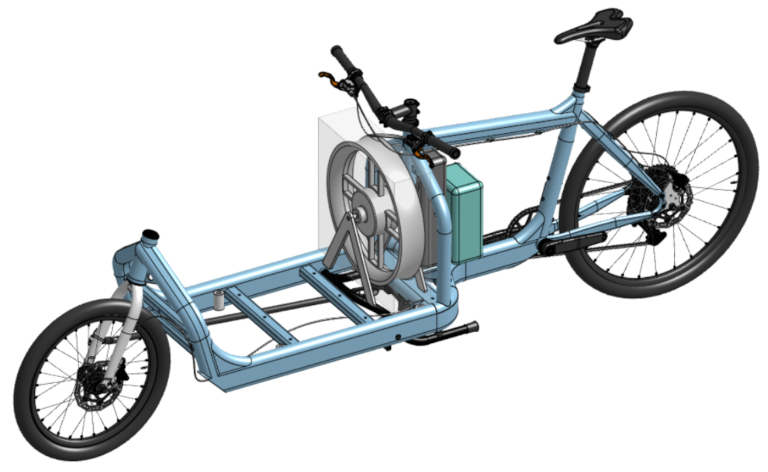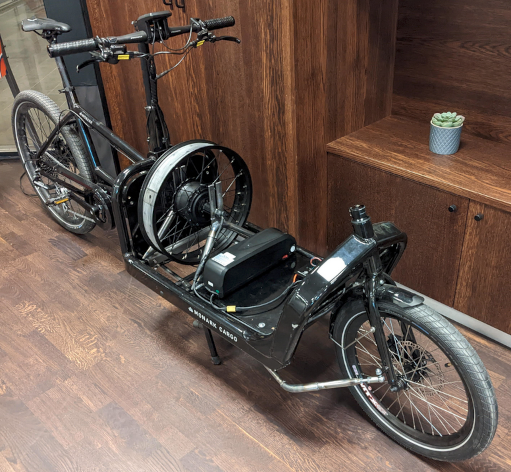 |
 |
Two wheel cargo bicycle use has grown over the last decade. Increases in "last mile" home delivery of goods and food requires rapid, versatile delivery in urban areas. Bicycles with cargo areas are optimal solutions for distributed urban delivery. The vehicles also allow for green transportation for families. With the growth of safer bicycle infrastructure in many countries, these vehicles replace more and more cars for various family activities. Electrification has played a key role in making bicycles more suitable for both of these tasks allowing for lower rider input power or even increased loads. Electric pedal assist enables these technology adoptions, but with the existing onboard electrical system, the opportunity to provide more types of assistance presents itself. We are interested in expanding the applications to electric steer assisting motors. Steer assist has the potential to improve safety and convenience.
One particular problem cargo two-wheelers face is at low and near zero speeds the vehicles are hard to balance and handle. Delivery people need to quickly park their vehicle without the need for a bicycle rack or cumbersome kickstands for quick door calls. Similarly, parents need to seat and remove their children from the vehicle without worrying that it would fall. Also, both vehicles come to a stop in traffic many times throughout a trip. At every instance near zero speed, assistance in balance would relieve the rider from any difficulties of balancing the vehicle.
Many single vehicle accidents occur in this near zero speed regime and we're interested in finding solutions to improve safety and convenience in this speed regime. For safety in child carrying vehicles, this is of particular concern. Reducing the skill and effort necessary for balancing a loaded cargo bike at low speeds would provide an accessible replacement for tasks typically performed with cars. This could reduce the number of trips taken by car and, with fewer cars, interactions with vulnerable road users could decrease within urban centers.
We have constructed a reaction wheel capable of balancing a cargo bicycle and its passengers, but it has yet to balance the bicycle on its own. This mechtronic oriented MSc project will involve improving the reaction wheel's mechanical design to withstand the large torque magnitude, designing and implementing a controller that is robust, and testing the viability of the prototype. The microcontroller is currently implemented in C++ on a Raspberry Pi 4 and the reaction wheel is installed on a Workcycles bakfiets.
You will collaborate with our partners in Sweden and California on the microcontroller.
How To Apply
If you would like to apply for this project, please send an approximately half page letter explaining your motivations and interest in the lab and project, CV or resume, a list of courses you've taken, the name of your MSc track, and any other relevant information to j.k.moore@tudelft.nl.

